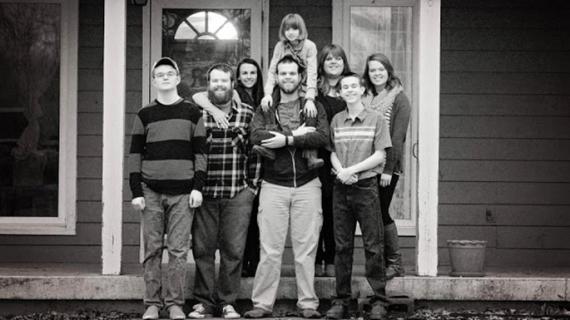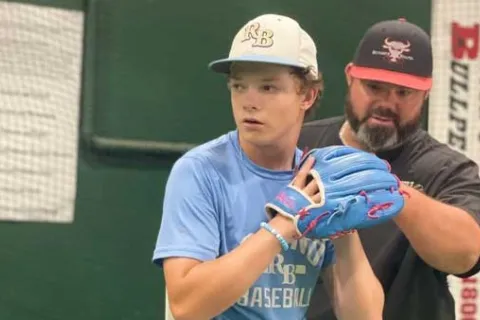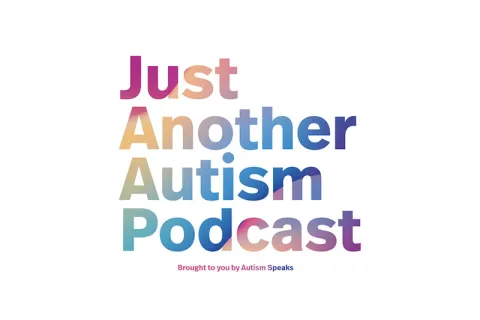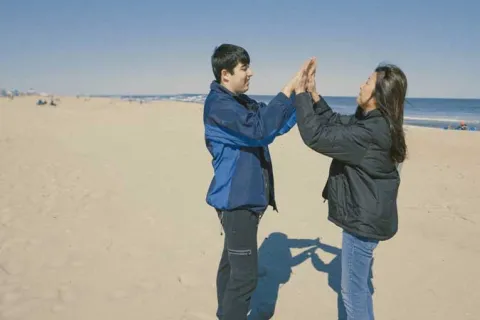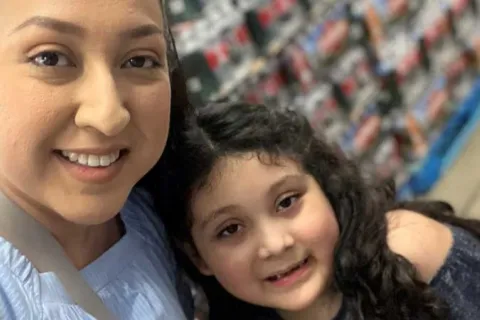The do's and don'ts after an autism diagnosis
By Lisa SmithThe post below is by Lisa Smith, the mother of seven children, two with special needs. Her son Tate has autism. Lisa blogs about her experiences and can be found on Facebook at Quirks and Chaos or at her Quirks and Chaos blog.
Over ten years ago, my son Tate was diagnosed with autism and my life was forever changed. I am regularly asked for advice from parents of children newly diagnosed with autism. The diagnosis can be intimidating and parents are sometimes unsure of where to turn or what to do. I don’t have all the answers. But I do remember the panic, fears, denial, and the distress I felt when my own son was diagnosed. I know now so many things I did not know then. I can honestly say that the life we are living is not scary at all. And so I tried to put into words some of the things that I thought might help a parent of a child newly diagnosed with autism.
My child was diagnosed with autism - now what?
Don’t let the autism diagnosis intimidate you. Do give yourself some time.
Do some reading. Ask some questions. Do not jump to conclusions. Do not let all the doctors, therapists, educators, or the price tag that comes with autism intimidate you. One day you will look back on this and wish you could reassure yourself because you’ve got this.
Don’t let the autism diagnosis cause you to feel sorry for yourself. Do count your blessings.
In reality there are things so much worse than an autism diagnosis. Look around you. There are people dealing with truly tragic situations. Now, roll up your sleeves. Your role as your child’s advocate is going to keep you busy. Things are going to be okay.
Don’t let the autism diagnosis cause you to forget. Do remember that sweet baby you fell in love with.
He/she is still that child! Don’t become so caught up in the present or so fearful of the future that you forget what’s important. Don’t forget that you are your child’s parent first and his teacher/therapist second.
Don’t let the autism diagnosis leave you feeling self-conscious or paranoid. Do understand there is no guilt to be had or blame to be placed.
There is nothing you could have done differently to prevent your child’s autism. I will not lie. If your child melts down, or engages in stereotypic behaviors in public, there will be stares. There will possibly be rude questions and awkward silences. There will probably be people who think your child needs discipline when, in fact, discipline would be pointless. Don’t let people who are uneducated about autism cause you to feel humiliated. Know this: It does get easier with time.
Don’t let the autism diagnosis isolate you. Do reach out for help.
It is true that some people unfamiliar with autism might stop coming around after the diagnosis. They do not understand the behaviors, the meltdowns, the necessity for routine, and the jargon we speak. If you find yourself in need of understanding, find a parent who has already walked a few miles in your shoes. Online groups can be helpful. There are most-likely support groups and other parents in your situation within driving distance. Look to public schools and recreational activities in your area, as well as religious programs. There is a lot of camaraderie in the autism community. Reach out. We help each other.
Don’t let the autism diagnosis rob your other children. Do explain autism to your children and what it means to your family.
A child with autism will likely need more care than his siblings. Reassure your other children often and show them how important they are to you. When possible try to include all your children in the therapies and activities your child with autism needs. There may be many things your other children want or need that your child with autism cannot participate in. Sometimes your other children will have to have your undivided attention too. Your world cannot ALWAYS revolve around the child with autism.
Don’t let the autism diagnosis steal your joy. Do maintain a sense of humor.
You have a choice. You can dwell on all the what-ifs and the should-have-beens and become bitter or you can accept what is and look for the joyous moments around you. Having a child with autism will not suck all the fun out of life. A sense of humor can help you tremendously. The fact is, autism or not, kids are fun and kids say and do really funny things. Enjoy those things. Don’t let autism silence the laughter in your home.
Don’t let the autism diagnosis squash your hope. Do be willing to dream a little differently.
Before the autism diagnosis you were possibly envisioning driver’s education, college, a wedding, and grandchildren. Don’t stop dreaming dreams for your child. Those things still might happen. If, as your child ages, it becomes clear some of those things will not be happening, then modify your expectations. But stay motivated to help your child become the best that he can be.
Don’t let the autism diagnosis cause you to doubt your faith. Do take advantage of the things autism can teach you.
God does not “zap” families with autism because they’ve been “bad.” Many parents of children with autism report they have become much more patient and understanding people since their child’s autism diagnosis.
Don’t let the autism diagnosis pull you into frivolous debates. Do use your time and energy wisely.
You have got important things to be doing. Focus your attention, time and energy on your children and their needs. Don’t get caught up in the autism community debates that lead to nowhere. Whether or not you choose to use the word “autistic” or the phrase “person with autism” is no one’s business but your own. Your right to disclose your child’s diagnosis to everyone in your community or keep it in house is also your own. These kinds of disputes are not helpful and only cause division in the autism community. Don’t get involved. Your time is much too valuable. I can imagine what you are feeling. I have been there. Autism is like a thief in many ways. It has been known to rob children of their childhoods. It can sometimes steal the joy and hope from parents. Autism has drained a lot of bank accounts and has ruined marriages. But it does not have to be that way. Don’t let an autism diagnosis do those things to you.
Resources for families
- The Autism Speaks 100 Day Kit for Newly Diagnosed Families of Young Children was created specifically for families of children ages 4 and under to make the best possible use of the 100 days following their child's diagnosis of autism.
- The Autism Speaks 100 Day Kit for School Age Children is a tool designed to help assist families of children between the ages of 5 and 13 recently diagnosed with autism during the critical period following an autism diagnosis.

